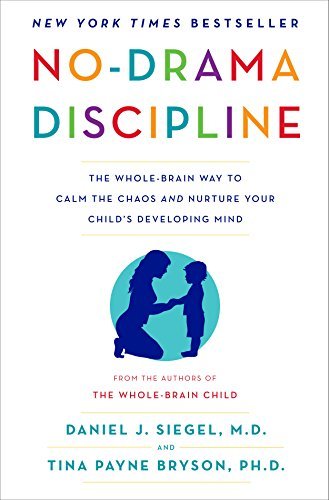Authors Daniel J. Siegel and Tina Payne Bryson made it sound so easy with the techniques outlined in No-Drama Discipline: The Whole-Brain Way to Calm the Chaos and Nurture Your Child’s Developing Mind, but remember, your mileage will vary. Even the authors admitted that there is no silver bullet to parenting and freely confessed their own parenting shortfalls in the book. That’s because every child is different, and no parenting approach will work every time, no matter how much you want to keep calm and connect before correcting.
The over-emphasis on staying calm is something I take issue with. If you’re angry, it’s okay to show your child that you’re angry – or hurt or disappointed. That’s a more natural, human way to react/interact. Instead, we are persuaded to speak in that coaxing, fake-happy voice that I’ve seen some parents used in conflicting situations. Negative emotions exist in all relationships. Part of being human is learning from them and doing better next time, not avoiding them altogether.
Perhaps only in the land of parenting utopia envisioned by Siegel and Bryson will every explosive situation end up with the child tearfully confessing their crimes, explaining their inner motivations, and working collaboratively with their parents on a solution.
The strategies and philosophies described in this book borrow quite a lot from discipline approaches, such as Jane Nelson’s Positive Discipline, Adele Faber and Elaine Mazlish’s How to Talk So Kids Will Listen, Elizabeth Pantley’s The No-Cry Discipline Solution, and Alfie Kohn’s Unconditional Parenting. However, most of the advice in this book is based on anecdotes, not research, and on a vastly simplified and dichotomous view of the brain.
Like other books by the authors, the content is repetitive and could have been condensed. If you’re pressed for time, you can probably skip ahead and read the “Connect and Redirect Refrigerator Sheet” in the Resources section without missing much.


